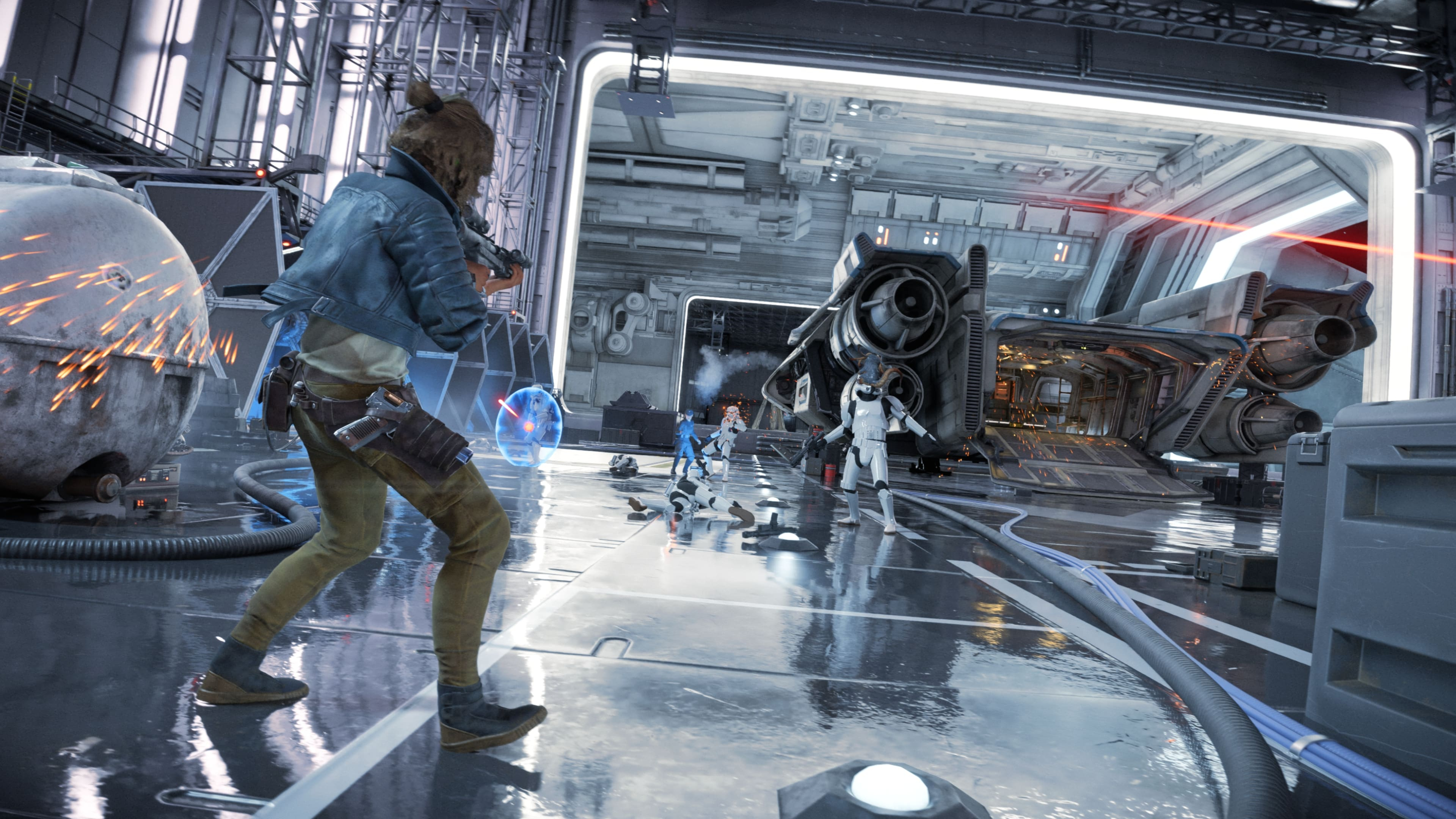
Platform reviewed: PS5
Available on: PS5, Xbox Series X, Xbox Series S, PC
Release date: August 30, 2024 (August 27 for Gold and Ultimate Edition owners)
Star Wars Outlaws promises the excitement of being a scoundrel and rogue in the famous sci-fi universe - and it delivers brilliantly on this, with everything being housed in an authentic Star Wars setting, aesthetic, and experience.
Everything in this action-adventure game from serial third-person open-world makers Ubisoft (its Massive Entertainment studio, specifically) combines to make for a fulsome, moreish, and compelling experience. Be it undermining the crime syndicates, stealthing through strongholds with your companion Nix to steal specific treasures, roaming the lands for experts to learn skills from, or soaking up the beautiful worlds and vistas on offer, there’s rogueish enjoyment around every corner. There are Ubisoft fingerprints all over Outlaws too with new variants on The Division’s pulse mechanic, eavesdropping from Assassin’s Creed, and the hacking from Watch Dogs; while it’s familiar when such things all come together, the payoff is a thrill.
It’s not totally blemish-free, however, and some characteristically Ubisoft open-world-isms, including quest repetition and labored and pedestrian traversal sections which are grating and make the experience stutter.
Far, far away
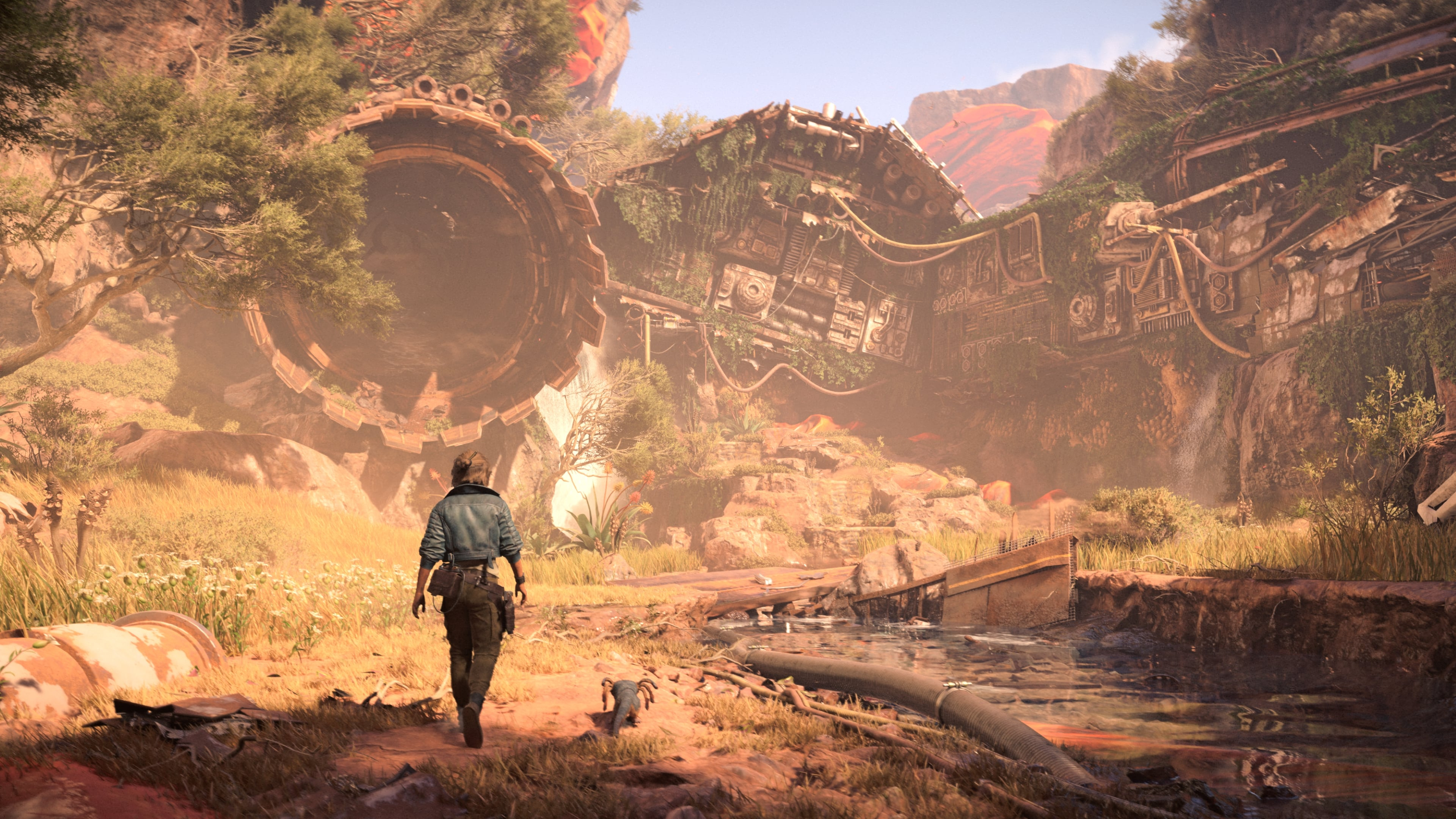
Outlaws’ open-world experience not only offers an open-world experience for discovery, exploration, and enjoying beautiful places that channels the pedigree Ubisoft has for making beautiful and expansive worlds. Outlaws serves up some incredible vistas and stunning environments - that aren’t covered in a carpet of question marks - to explore. but a desire and deliver them authentically too.
Complementing that is a dedication to Star Wars authenticity in everything from aesthetics and styles, to audio and overall ambience. It really is a true Star Wars experience and feels like it constantly, earning its place in the universe’s canon (Outlaws officially takes place between the The Empire Strikes Back and Return of the Jedi films). The beeps of droids and machines, the alien-language chatter in cantinas, the construction of buildings, ships, and apparel all feel ripped right from the screen.
This is on top of beautifully realized landscapes such as the expansive emptiness of Tatooine or the lush verdancy of Akiva, and wonderfully immersive and detailed cities like the wintry urban setting of Kijimi City (my personal favorite place in the game so far).
Getting between these planets is easy and smooth in Kay’s spaceship, The Trailblazer, with the transitions between space travel, landing, and exiting the ship being exceptionally cool and swift. On-planet travel on a speeder is a little less exciting, particularly after a while, however. It was fun for a while, getting to know how this shopping cart-come-wheel-less-motorcycle accelerates, handles, and turns, but it didn’t take me that long to start comfortably relying on fast travel locations or bombing in straight lines on my speeder between locations.
You like me because I'm a scoundrel
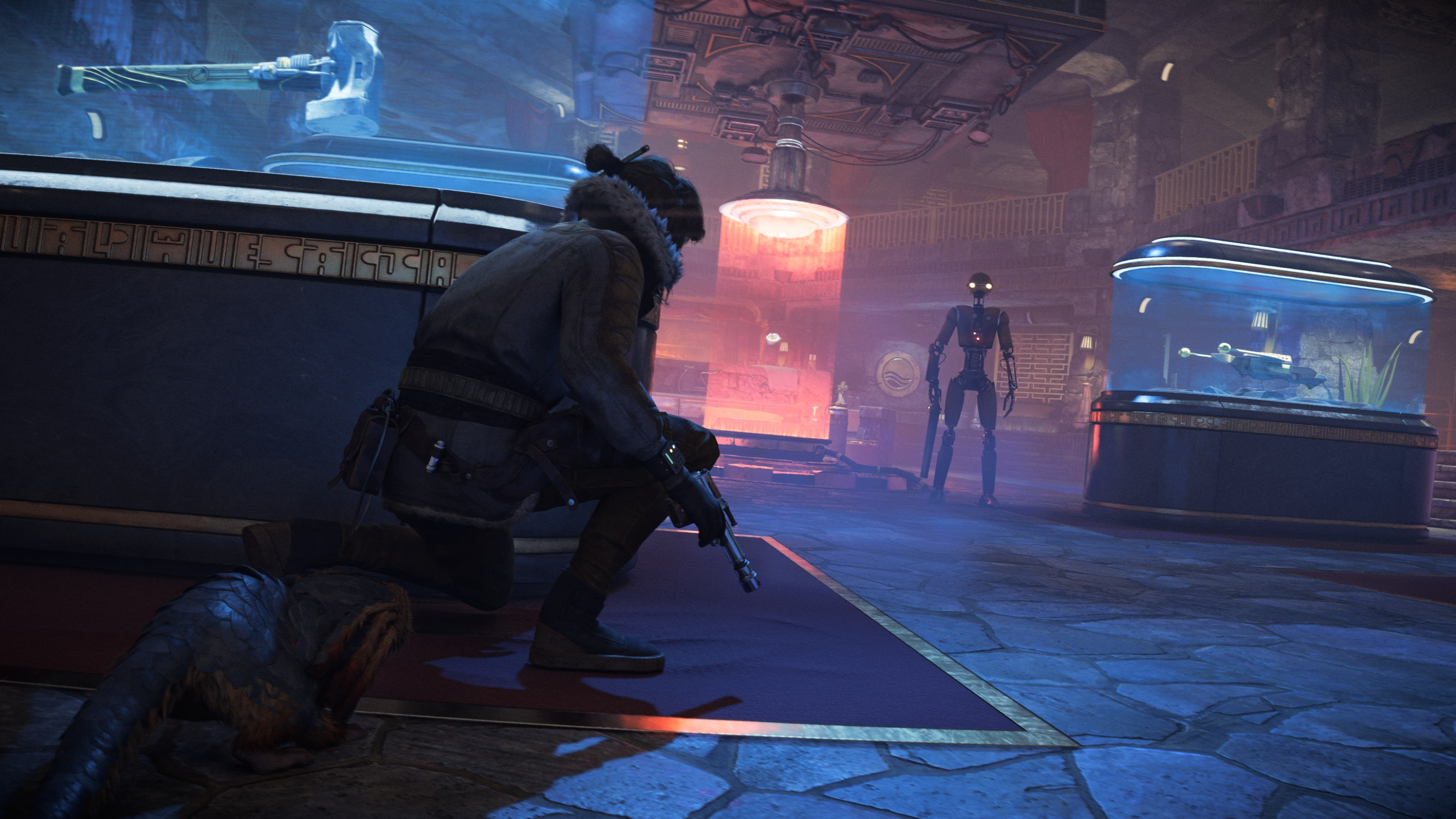
Navigating these worlds and places as protagonist Kay Vess with her animal companion Nix, however, is what truly brings the game to life.
Kay is a likable protagonist and is a tremendous ‘normal’ person to explore the galaxies through, free from The Force and all that lightsaber nonsense. The Han Solo inspiration is clear, though she’s a rogue and scoundrel who stands on her own two feet with clear strengths and distinction between her and Harrison Ford’s iconic character.
One of the clearest demonstrations of this is in her relationship with Nix, her animal companion. Nix feels like much more than ‘just’ a sidekick or travel buddy; there’s clearly an incredibly strong bond here, with the pair doing everything together. They even eat street food together in wholesome quicktime events which is a great microcosm of their relationship - the food even ends up giving Nix bonuses or extra little skills to deploy, too. As a result, I quickly became very invested in their relationship, which helped one particular rescue mission particularly resonate with me.
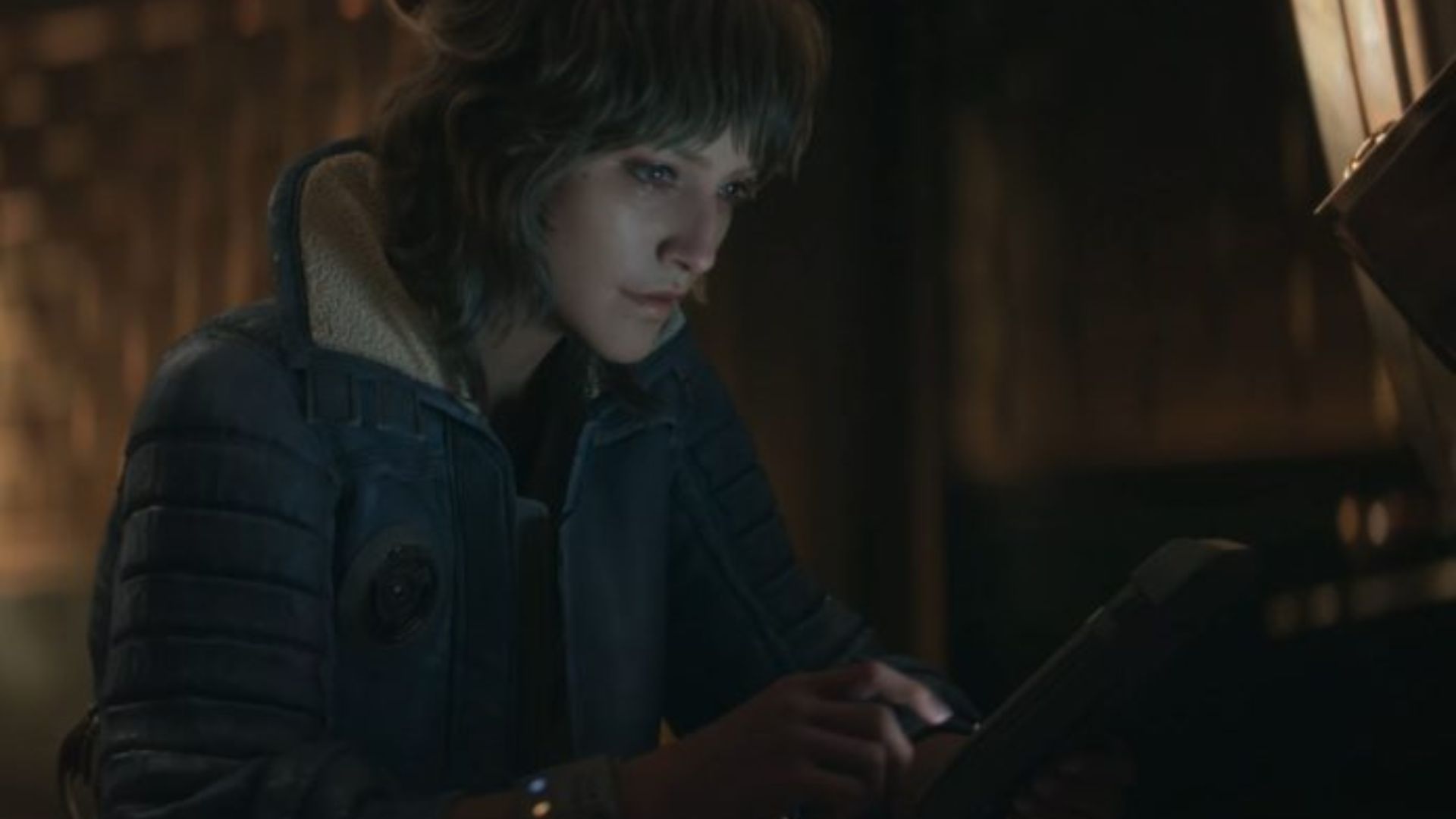
Living out a Star Wars scoundrel fantasy as a normal person in the sci-fi universe is one of Outlaw's greatest strengths. I’ve consistently had the most fun when I’m scratching around cities for credits, chasing weird parts for my gear, stealing items to play off syndicates against each other, and tracking down experts to teach me skills.
In practical application, however, Nix accentuates and complements Kay’s scoundrel and thief-like action in-game. Nix can help in combat by taking enemies out temporarily, and is a great boon in stealth, recovering items, powering off devices, and distracting guards while you stay undetected.
This scoundrel roleplay you can engage Kay in is perhaps the greatest strength of the game, too. On a micro-scale and macro scale: from the moment to moment, sneaking, lockpicking, and hacking through bases to lift high-value items, planning searches for parts and upgrades for your, blaster, speeder, or ship, and going on a multitude of missions and side quests to change your standings with the crime syndicates, it’s a brilliant rogue’s life.
In fact, planning and engaging in all the scoundrelly side content in the game is where most of the game’s best depth and interest lies: there’s so much to do and think about and you can get so much out of contracts, intel chasing to fill out your journal with tasks and quests, loitering in places to pick up on overheard conversations, and general exploration, while the mini-game of Sabacc (a card game) is a seriously moreish addition. Where’s the standalone version, Ubisoft?
Never tell me the odds
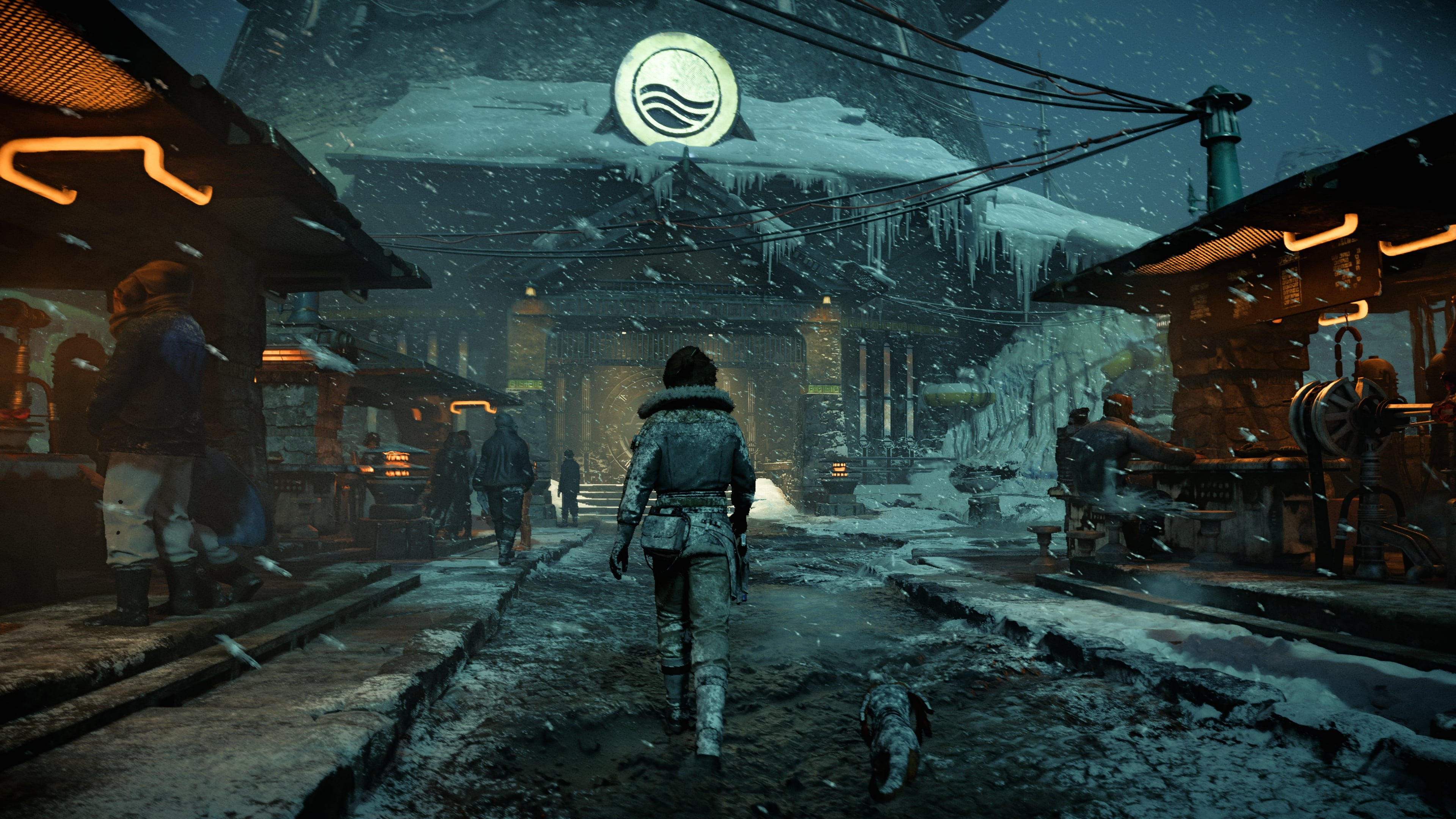
The missions and quests in Star Wars Outlaws have some of the best places and environments in the game. They’re very deliberate settings that make for great self-contained adventures, such as the rusting remains of huge ships.
These come further alive when applying Key’s stealthy and sneaky approach, taking advantage of the multiple routes that are almost always open to you. Stealthing through missions to quietly turn off alarms, set off distractions, silently take down guards, and sabotage equipment is a thrill. It reinforces the fact that Kay is a normal person, a thief, and a rogue, and so has to reply being sneaky. Perfecting infiltrations as such a comparatively underpowered character is incredibly satisfying.
However, such missions also house some of my biggest frustrations with the game. There is some annoying checkpointing in some which can lead to big chunks of progress lost if you make the smallest mistake. Some of the side quests too can fall into the trap of being repetitive, following that very well-trodden and familiar pattern of: ‘go to the place, infiltrate the place, find the thing in the place, shoot some baddies in the place, leave the place.’ Almost all missions will involve similar infiltration tactics too, such as finding vents to bypass areas, scaling cliff edges and building ledges, and climbing ladders. There are a lot of ladders.
It certainly doesn’t help that traversal feels very plain. While Kay’s grappling hook is a great tool to have, it can only be used in a few spots and with quite sluggish animations. Worse still, the Uncharted-esque scaling of walls and grates feels boring, overly simplistic, and is just highly forgettable.
A rogue's toolkit
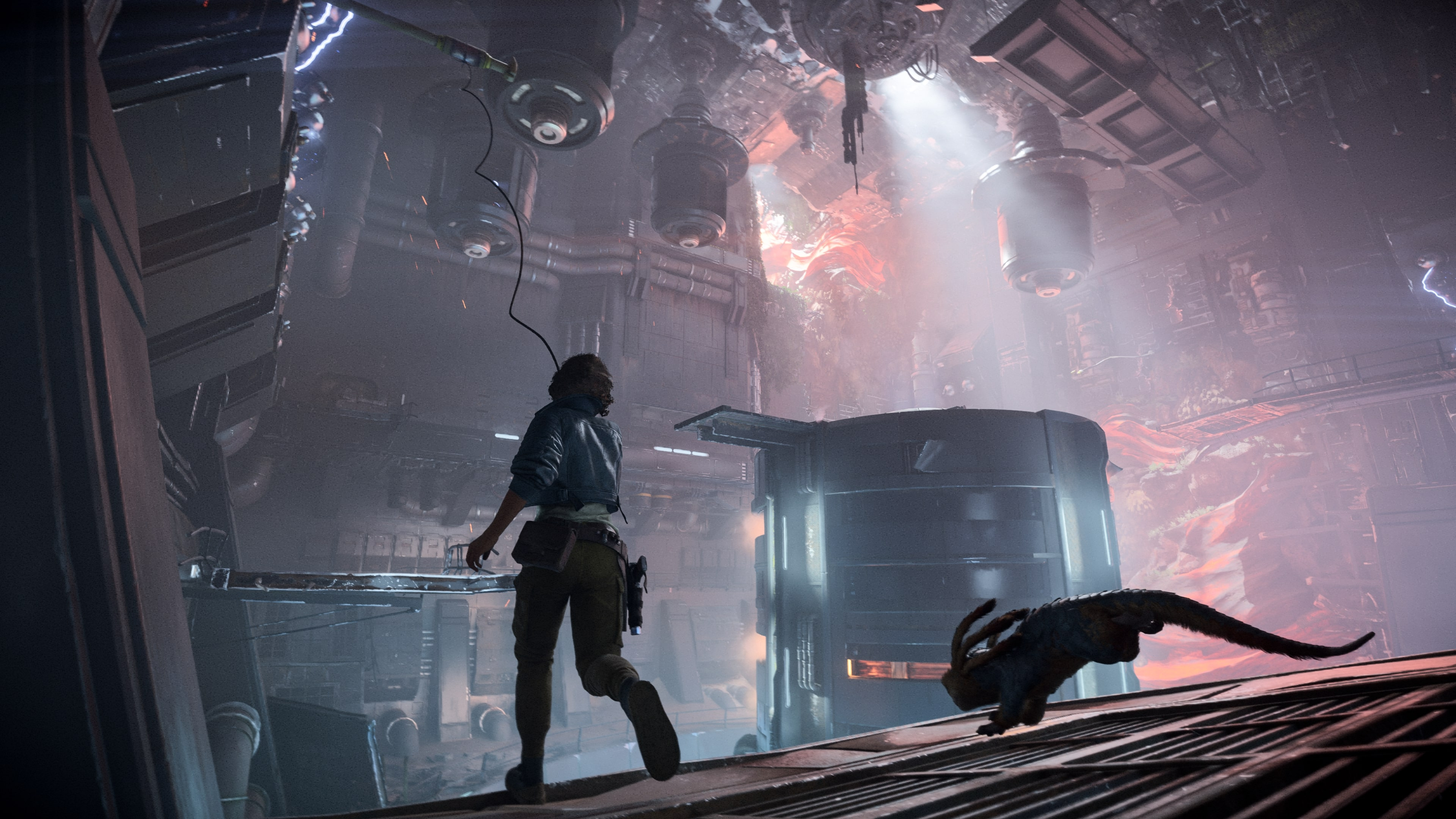
That said, completing said missions with the rest of Kay’s abilities and toolset is a highlight. While she can ‘slice’ (hack) her way into security systems and computers by cracking (simple) codes by matching symbols, her data spike is the best of the bunch and demands some skills to use. It has you match inputs rhythmically to a click sound and light flash on the lock to break it open by matching the pattern.
In a clever twist on leveling up and acquiring skills and abilities, Kay has to find the right expert to teach her said abilities. It makes sense and matches the scoundrel lifestyle she leads - she only gets better at things when she learns them. As a result, skills feel truly earned. This also neatly ties in progression to world-building - and vice versa - successfully making you and your actions feel part of an active world, not someone passing through it to pick up points transiently.
I didn’t collect all the experts on my playthrough and definitely missed out on some helpful tools and abilities as a result, so it really is worth gathering them up when you have the chance.
Another brilliant skill is Kay’s slick adrenaline ability that enables her to tag and dead-eye blast enemies. It’s not something I haven’t seen before, but still feels worthy of Han Solo himself and is even more satisfying when hightailing it across a landscape while being chased by stormtroopers.
Speaking of blasters, Kay has three types of ammunition by default: basic plasms, an Ion one for disrupting shields and some enemies, and a charged powerful shot. Her blaster can also be upgraded as you go, offering different variations of delivering blasts, boosts to recharges, and more.
Hand-to-hand combat is okay on the whole, with each punch delivering a decent level of impact. There are some cool moves or finishers that can happen depending on where you are, though the stealth takedowns are a bit disappointing. They feel sluggish and the time they take Kay to perform can be annoying when you’re trying to quickly move between targets or areas undetected.
Playing the game
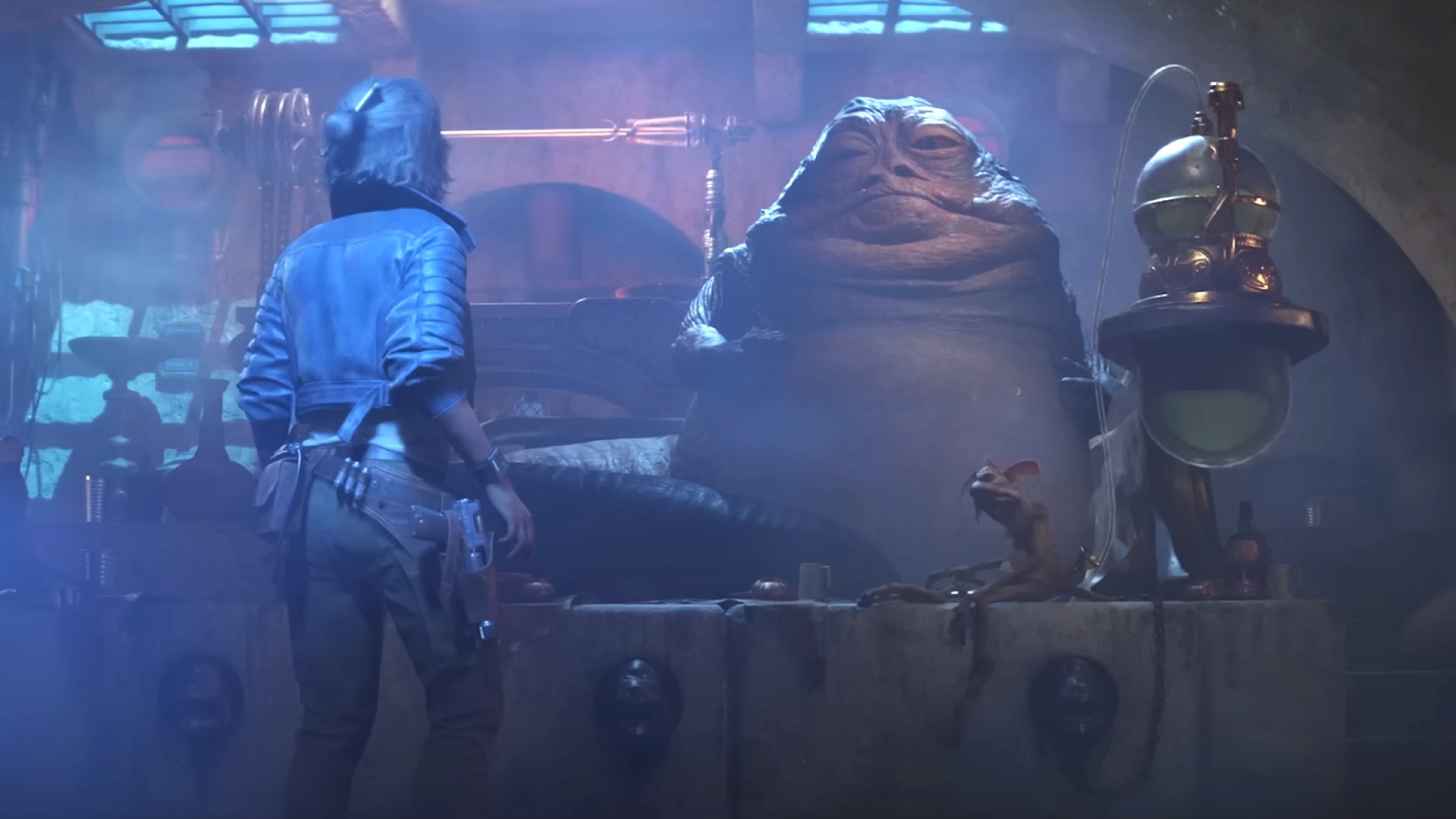
Another major factor to consider is the crime syndicate and reputation system - it’s a seriously meaningful mechanic that tangbily impacts how you play the game.
There are four crime syndicates, with at least two inhabiting each world vying for power and influence. Kay has to make the best of fluctuating relationships with all of them and her reputation quickly changes along a scale with every completed mission. The four different stages of approval noticeably change how the factions interact with you, from goons that shoot you on-site all the way to getting preferential treatment and exclusive access.
While you can earn favor from all the syndicates separately, it’s incredibly difficult, bordering impossible, to achieve this at the same time - instead you’ll have to constantly balance being in favor with some with being out of favor with others. This adds jeopardy and meaning to your choices, forcing you to think carefully about decisions, such as dialogue choices that can sway the outcome of a mission in an instnat, and what quests you want or need to do.
It's a familiar combination, sir, but it checks out
Much like other Ubisoft open-world games, when each element of Star Wars Outlaws comes together it makes for some compelling magic that’s brilliant fun.
Part of me feels frustrated by the flaws in the game and the truly amazing adventure that it could have been, but then another part of me can’t wait to get back to being an inter-planetary scoundrel, navigating the seedy underbelly of the Outer Rim. It has its faults but Star Wars Outlaws is easily one of the most enjoyable games I’ve played this year and must for any Star Wars fans.
Accessibility
Star Wars Outlaws has numerous accessibility options, and its dedicated menu splits them up into five areas: gameplay, cognitive, colors, vision, and hearing. We’ve attached images of all of them below to give you an insight into what’s on offer.
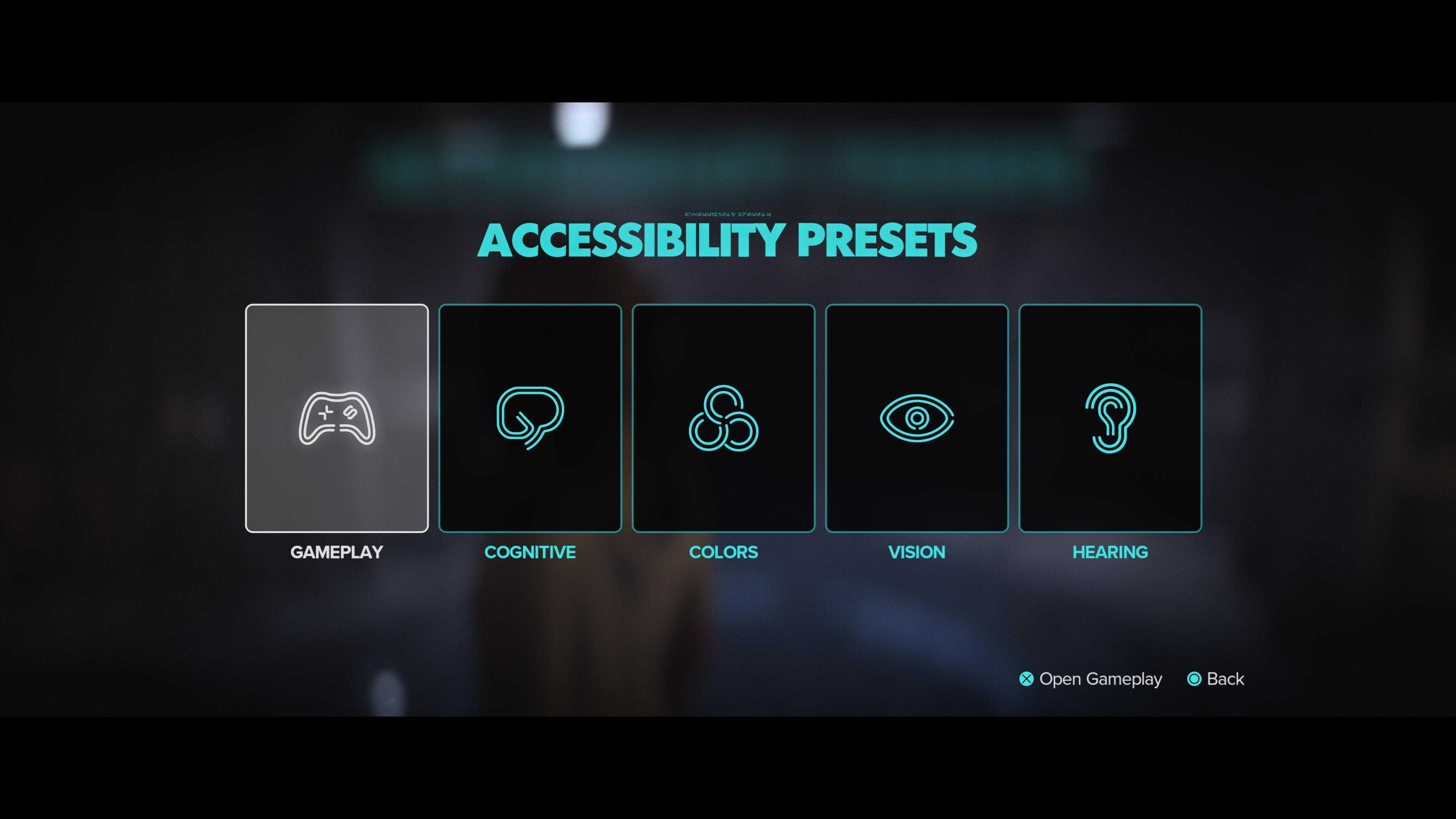
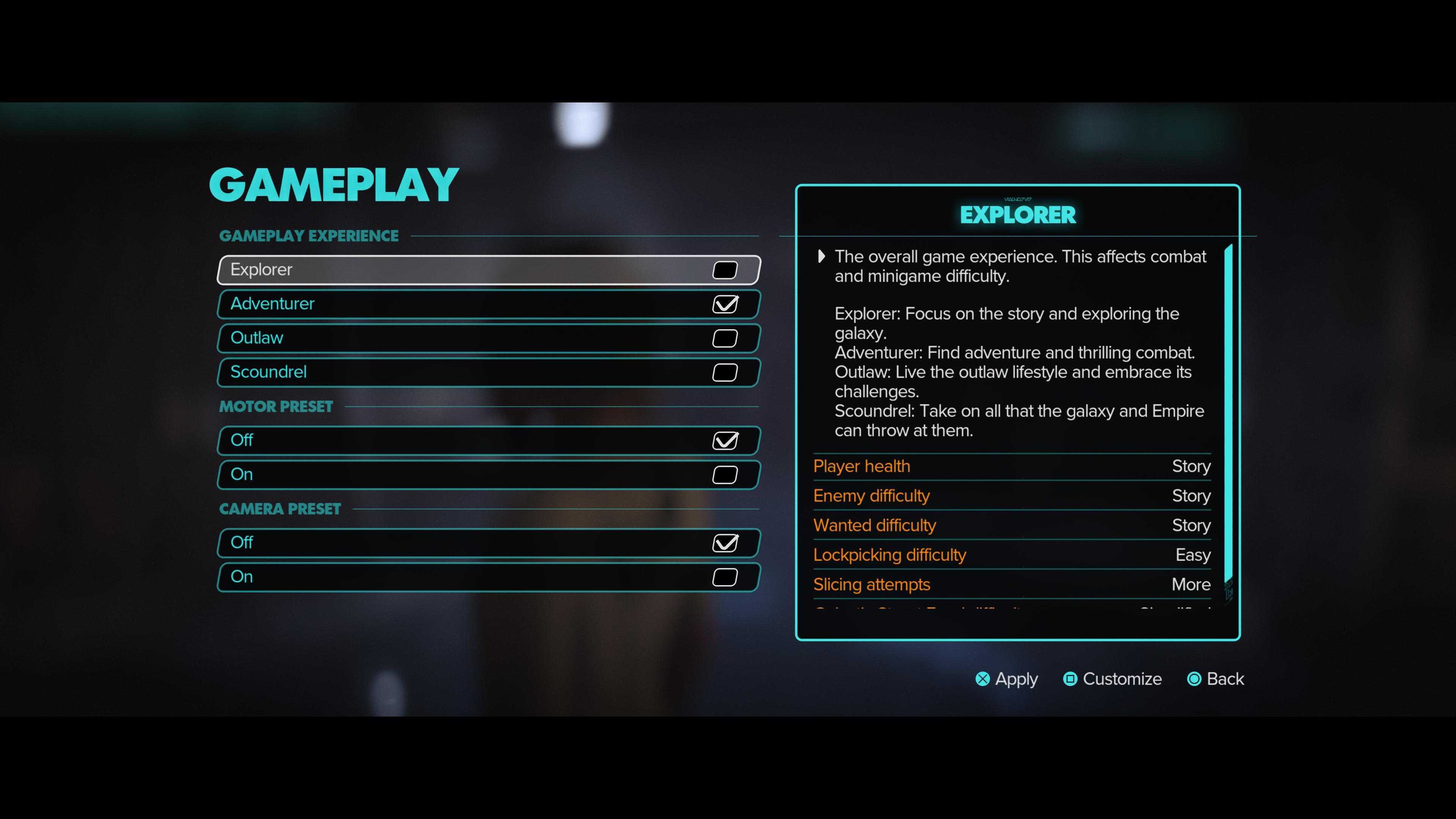
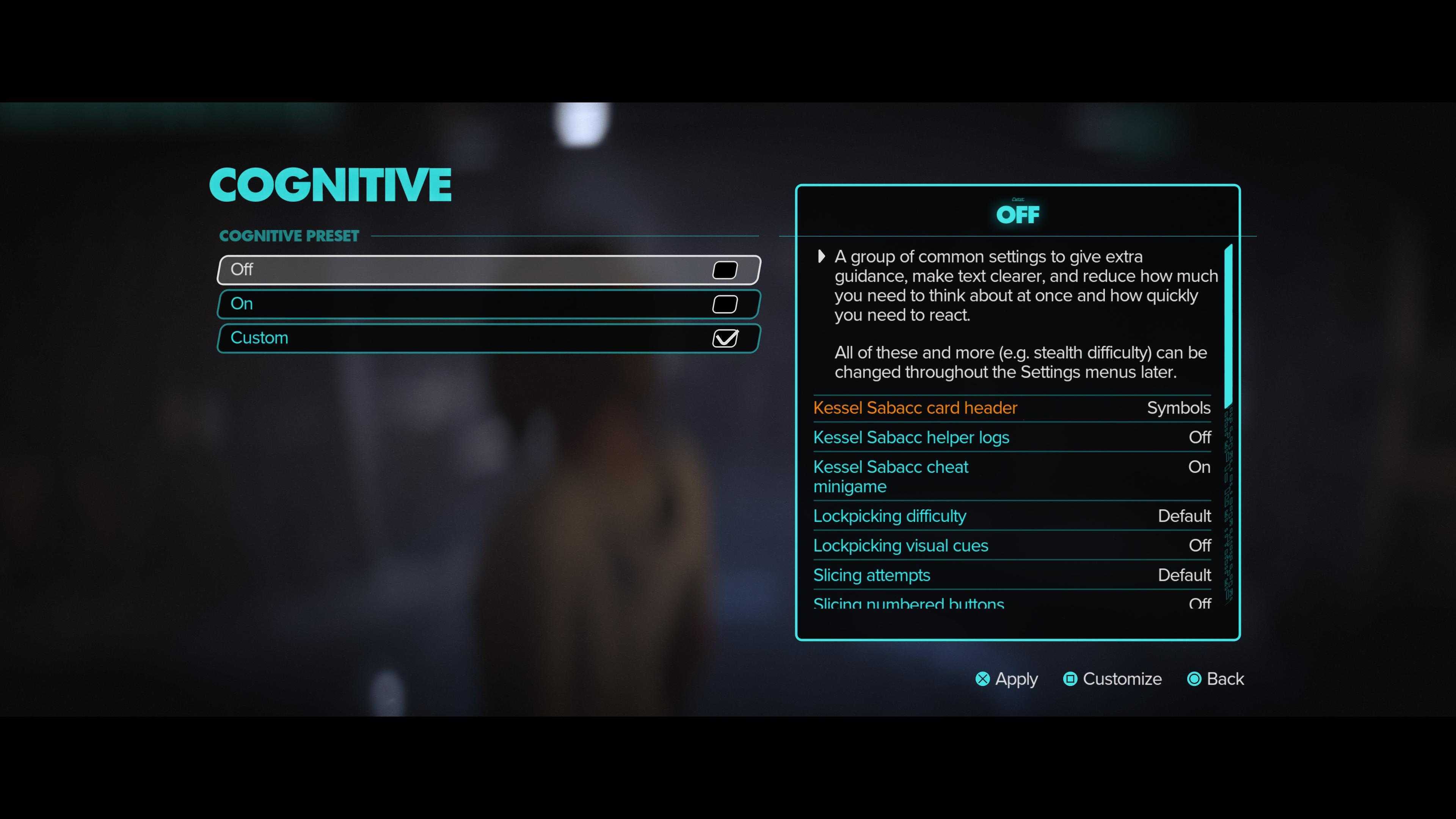
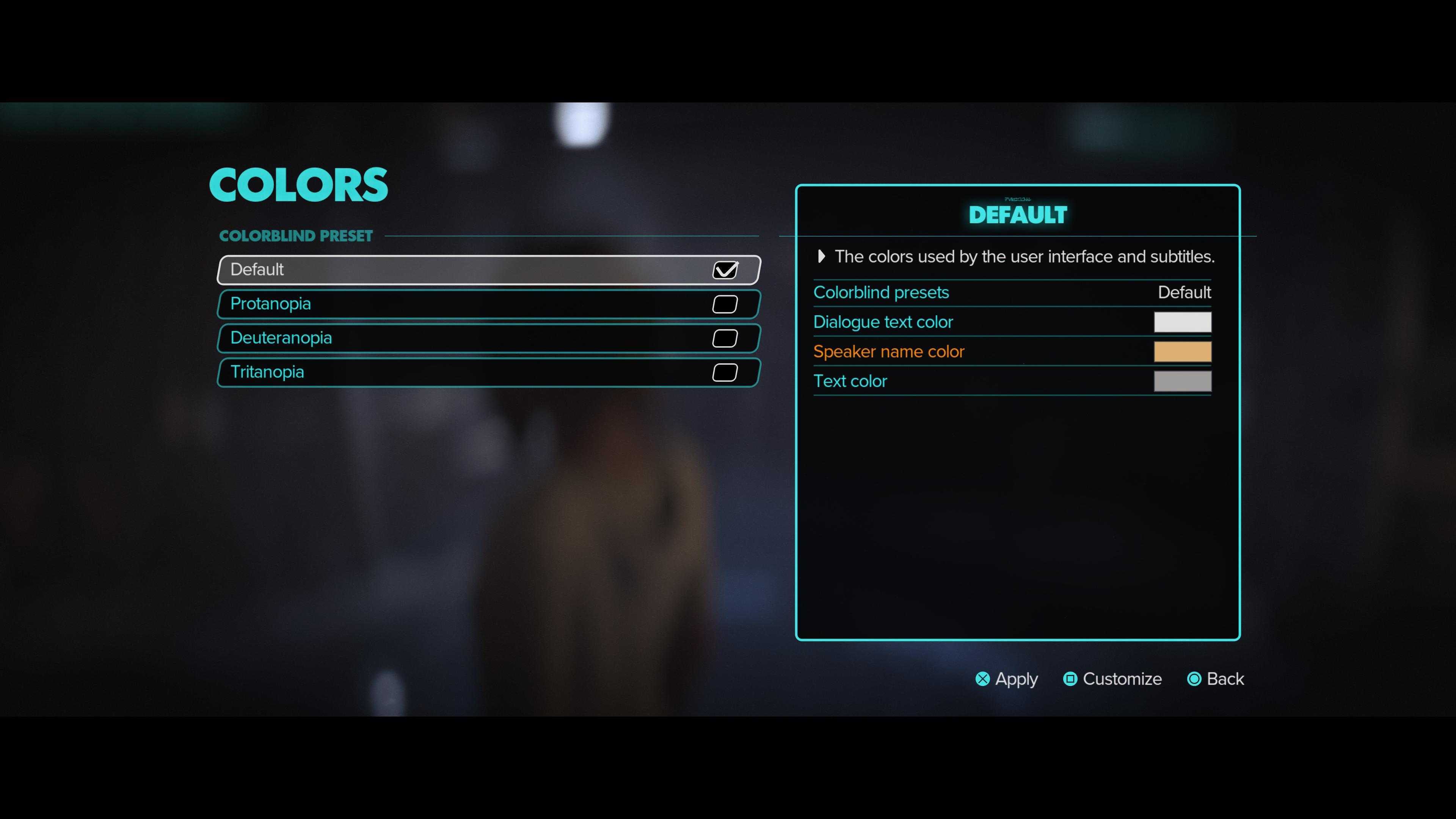
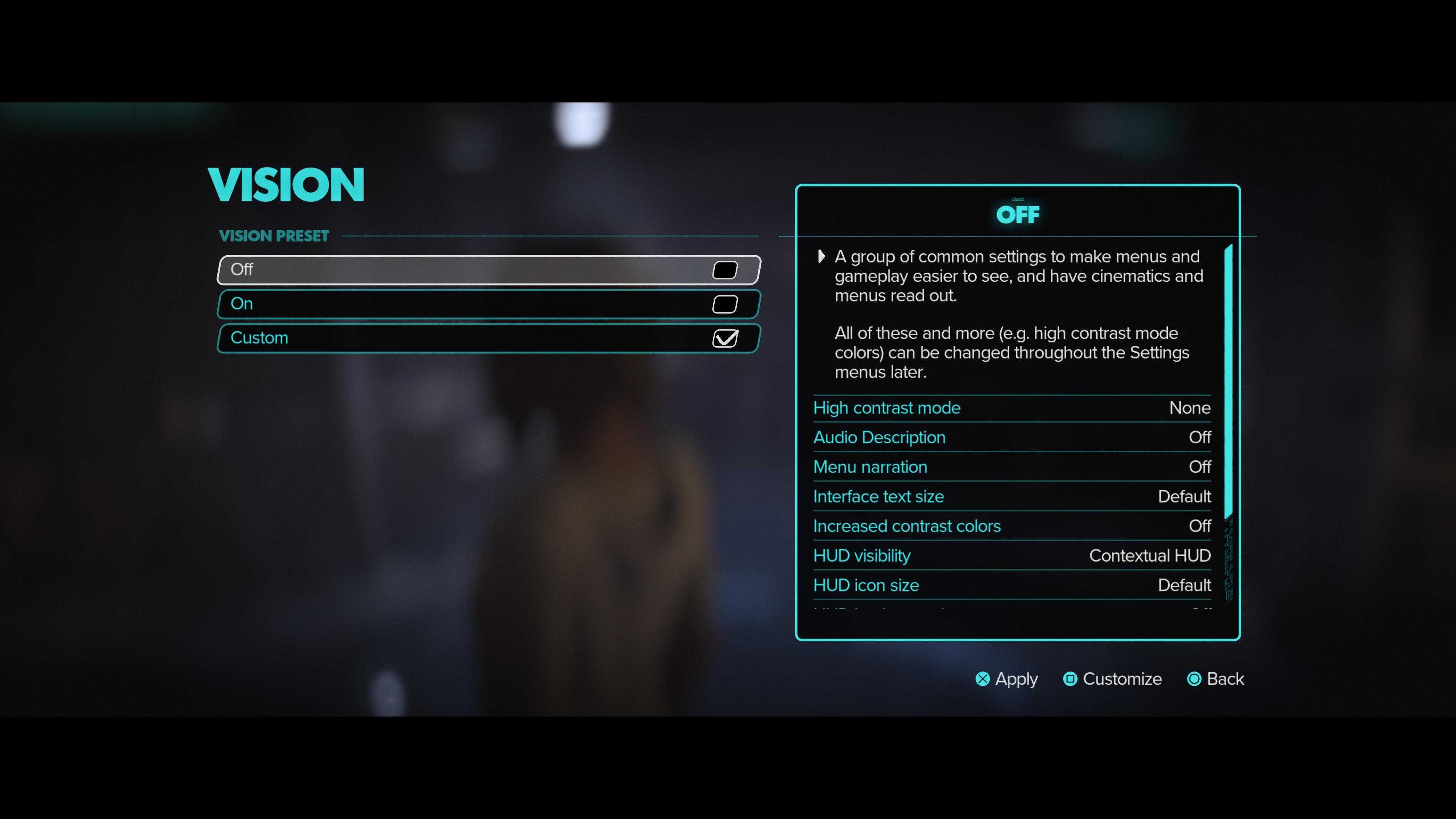
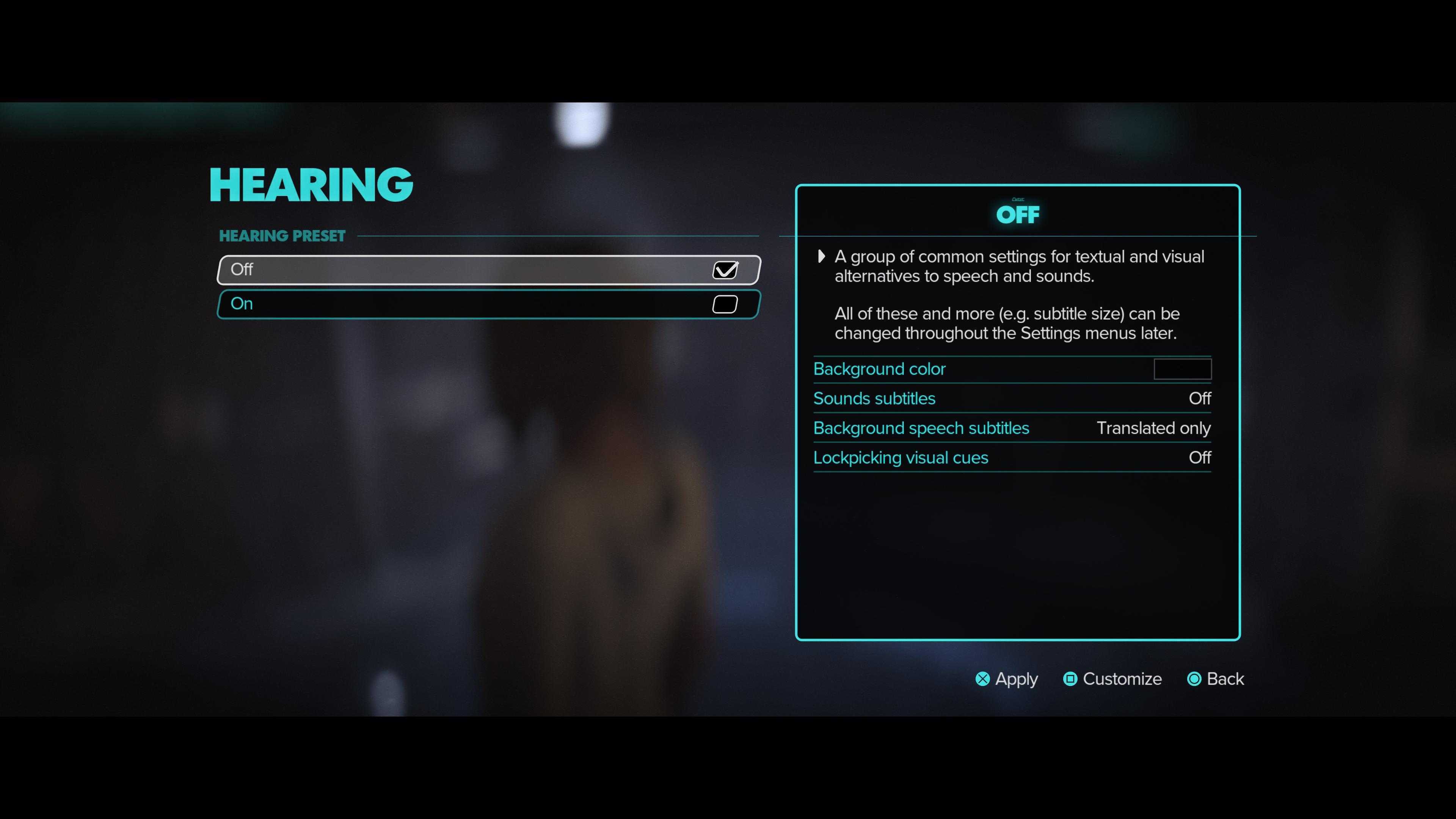
As well as the dedicated difficulty options in the accessibility menu, there are also a host of other options that can be played around with to get the right balance for you, from visual changes to mini-game mechanics.
Should I play Star Wars Outlaws?
Play it if...
Don't play it if...
How I reviewed Star Wars Outlaws
I have played roughly 25 hours of Star Wars Outlaws and managed to complete the main storyline as well as a host of other quests, missions, and exploration. However, I still have plenty to do, including recruiting a couple of experts, so I’m excited to jump back in.
Playing the PS5 version, I tested both graphical (performance and quality) and resolution (full screen, 16:9 and 21:9) settings. I found the performance mode better for play and quality making the worlds look even more beautiful. When it comes to resolution I found the fullscreen option was superior as the cinematic one removed a whole lot of screen and game instantly.
I tested the game with a regular DualSense Wireless Controller, and played the game on my Samsung Q6F 4K QLED TV and Samsung HW-J6500 curved soundbar I also played some when plugged into the PS5 Pulse Elite headset and SteelSeries Arctis Nova Pro Wireless headset. I also played a fair chunk on my PlayStation Portal combined with my Pulse Explore earbuds and found the game was a great match for the PS5 remote play device.







